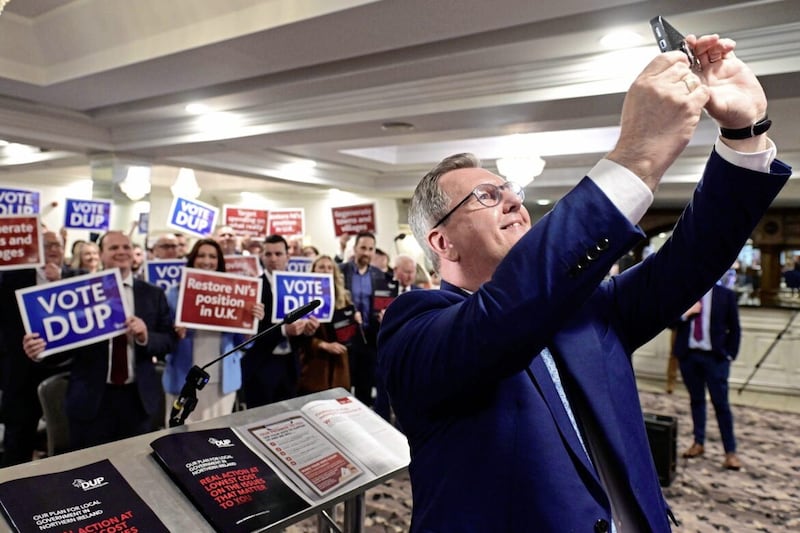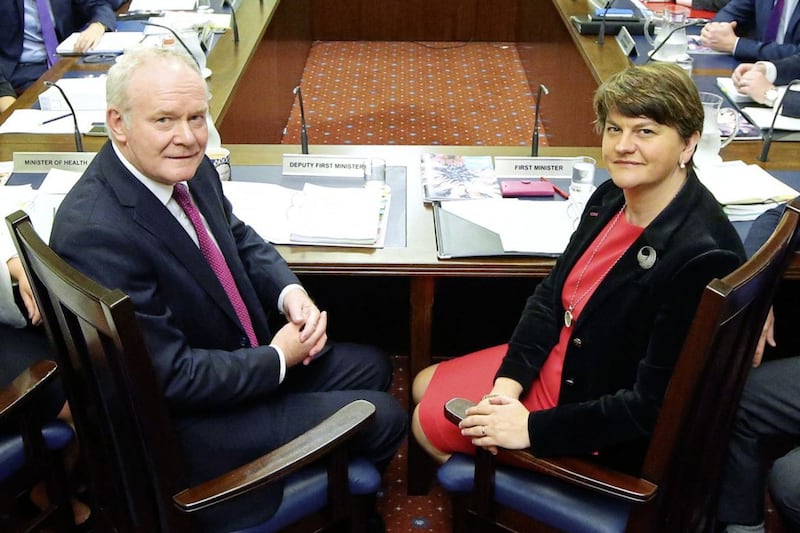Rioting at a dissident republican parade in Derry has provoked the usual despair over how to deal with the young people involved. Violence has been glamorised by the adults who planned the disorder, yet there is also a form of glamorisation in the despair itself. Well-meant warnings to young people about ruining their lives and the lives of others, elaborate diversion schemes and other official interventions, condemnation from community leaders - all provide a degree of attention that can too easily become validation, even encouragement.
The warning that should be provided from the Troubles is this society’s remarkable capacity to blank out violence even a few streets away and to write off those responsible, certainly at the level of youthful rioting, as not worth a second thought. The vast majority of the population managed this effortlessly for decades. But it suits few agendas today to explain this – and even if you wanted to, how would you get such a message across?
**
Journalist Sam McBride, who wrote the book on RHI, says many of the problems the story revealed are “being repeated before our eyes” over the ousting of a whistleblower from the Department of Agriculture.
Senior vet Tamara Bronckaers was sacked after raising concerns about potential fraud and animal suffering. An industrial tribunal found in her favour but the department tried to take the judgment to the Court of Appeal, before backtracking and apologising, landing the taxpayer with a £1 million bill. The two senior civil servants criticised by the tribunal were not disciplined and one has now promoted the other.
DUP agriculture minister Edwin Poots has denied ordering the highly unorthodox appeal but nobody else will admit it. Officials might have assumed his approval. When Poots was health minister a decade ago, his department presided over high-profile whistleblower mistreatment cases in the health and fire services.
**
Flights from Jersey and Guernsey to Dublin are having to land in Belfast, with passengers bussed across the border, due to a Brexit-related issue with airline permits.
Reporting the story, Private Eye noted the irony that the Channel Islands were never in the EU but are still affected, as parts of their relationship with Brussels were under a protocol - that dreaded term - of the UK’s membership.
A further irony is that Jersey and Guernsey are members of the British-Irish Council, the Good Friday Agreement body comprising the governments of the UK, Ireland, the devolved regions and the crown dependencies.
Each government is designated the ‘lead administration’ on particular issues and transport falls to the Northern Ireland Executive. Should Stormont be sorting this out?
**
The UK has revealed its new electronic travel authorisation (ETA) visa waiver will be valid for one year of unlimited trips, for £10. This is disappointingly short compared to the two-year US equivalent and the three-year waiver the EU is introducing for Schengen countries next year, priced at $14 and €7 respectively. Although the cost and nuisance of the online application will be trivial, there is a psychological difference between a piece of bureaucracy you have to complete annually and one you only have to do once in a blue moon and can then forget about for years.
The shorter validity period will not make the disastrous impact on Northern Ireland’s tourism industry any worse and the EU waiver’s impact on non-Schengen Ireland could help normalise the process. But for those third-country nationals resident in the Republic who want to cross the border regularly, the paperwork will feel more like needing a dog licence than a driving licence.
**
Tony Blair’s first government set the target of 50 per cent of young people attending university, finally reached in 2019. Now the Tony Blair Institute has published a report saying the target should be 70 per cent by 2040 - the level already achieved in high-innovation countries such as Japan, South Korea and Canada. The report debunks dinner party notions of ‘too many graduates’ and ‘soft subjects’, acknowledging that “while we do need to tidy up some of the rough edges... and there are lower-level skills gaps in our economy… neither of these mean that we have reached ‘peak grad’.”
This has sparked a debate in Britain that is even more urgent here. Stormont subsidises our lower tuition fees by capping the number of undergraduate places, so our universities cannot expand even if they want to, more young people want to attend them and the UK government makes more loan finance available.
**
Rangers supporters have been ridiculed for asking the Electoral Office to extend the deadline for postal voting so they can attend a match in Glasgow. The TUV candidate in Upper Bann even put in a formal request. Loyalist blogger Jamie Bryson has claimed Celtic fans would be treated differently, which would not be the case, although whether they would behave differently is another matter. Among the many reasons the Electoral Office cannot give an inch on this issue is that football matches are known to influence elections, most famously in Labour’s surprise 1970 defeat four days after England lost a World Cup quarter-final to West Germany. If the slightest allowance was ever made for this, there would never be an end to it.





